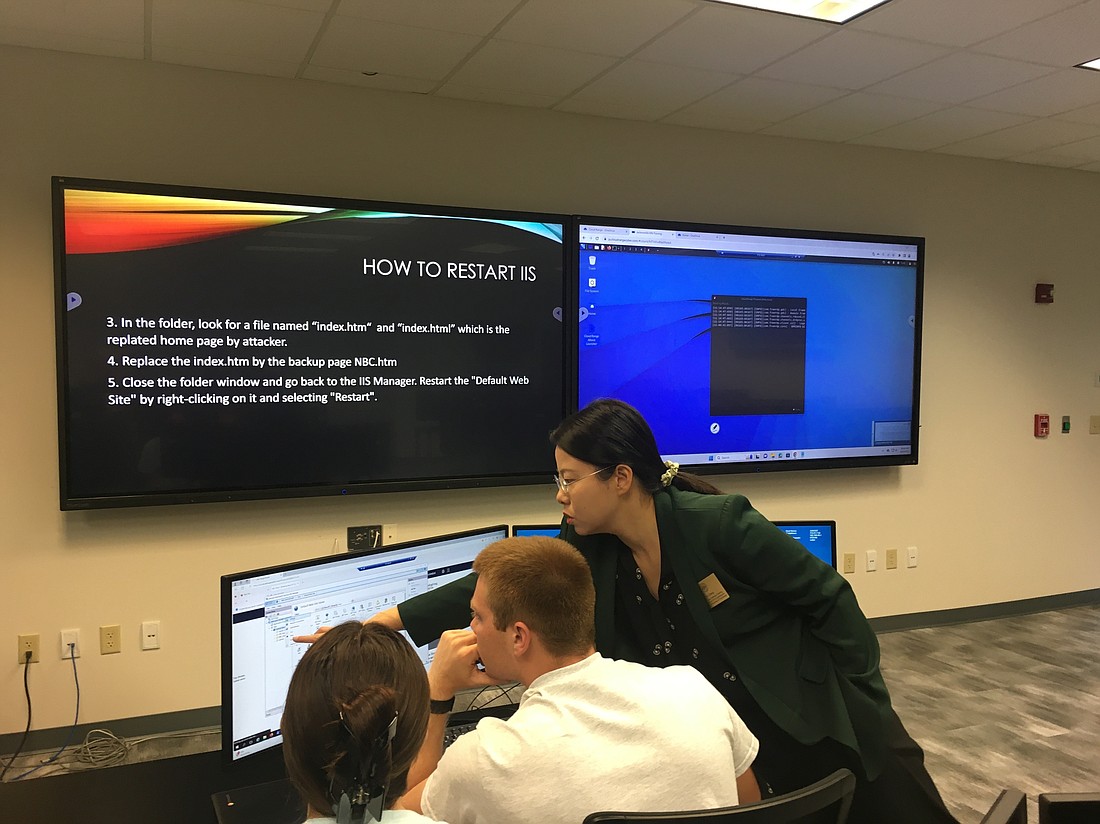
The Davis College of Business & Technology at Jacksonville University is recognized by the National Security Agency and the Department of Homeland Security as a National Center of Academic Excellence in Cyber Defense Education through the 2029 academic year.
“The CAE-CD designation is a validation of Davis College’s commitment to excellence in cybersecurity education. We’re home to some of the best cybersecurity faculty on the First Coast, and our program is attracting talent from all over the globe,” Barbara Ritter, dean of the Davis College, said in a March 19 news release.
“The multi-disciplinary approach that will be created by Davis College of Business & Technology will build crucial cybersecurity competencies for cybersecurity professionals who will serve the nation as future cybersecurity professionals,” Memee Joking, commandant of NSA’s National Cryptologic University, said in the release.
“This innovative effort comes at a critical time and will exponentially expand the pool of eligible and certified cyber experts who will protect and defend the Nation’s national security posture.”
Through its bachelor’s degree in cybersecurity program as well as a 12-credit hour Certificate in Cybersecurity, Davis College prepares graduates to investigate, detect, identify and solve cybersecurity issues and challenges.
“Davis College is committed to meeting current and future workforce demands with excellence,” Mini Zeng, director of JU’s Center for Cybersecurity, said in the release.
“With the demand for this profession at an all-time high, students graduating from this program are able to find jobs right after they graduate. This designation recognizes our commitment to training and preparing leaders in this critical industry.”
The National Centers of Academic Excellence in Cybersecurity program is managed by NSA’s National Cryptologic School. Federal partners include the Cybersecurity and Infrastructure Security Agency, the FBI, the National Institute of Standards and Technology/National Initiative on Cybersecurity Education, the National Science Foundation, the Department of Defense Office of the Chief Information Officer and U.S. Cyber Command.